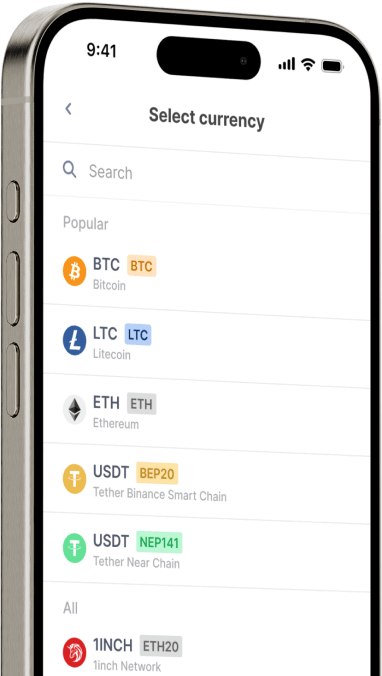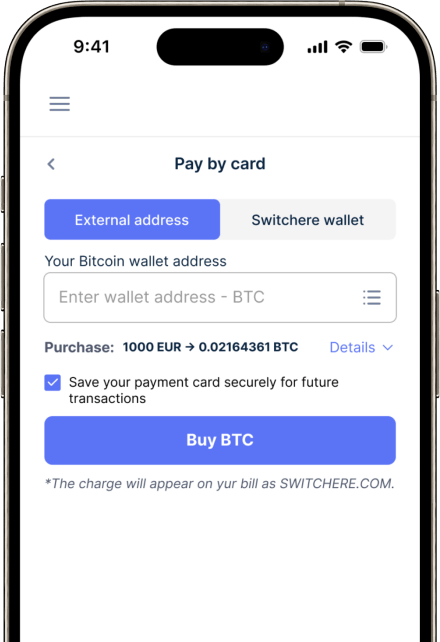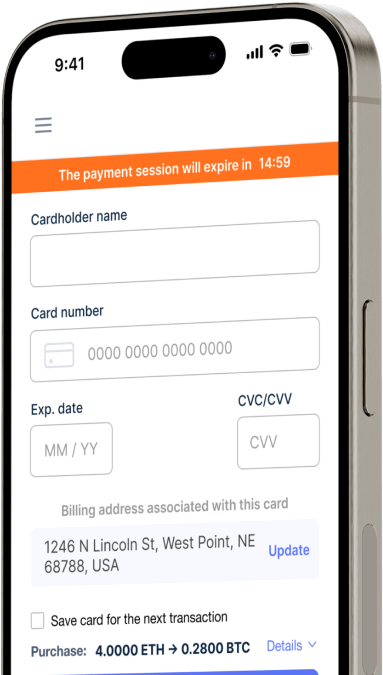Convert
New Taiwan Dollar (TWD) to Binance Coin (BNB) Instantly
Purchase Binance Coin (BNB) with New Taiwan Dollar (TWD) easily at Switchere and benefit from fast, secure transactions.
About
Binance Coin (BNB)
BNB, representing the native cryptocurrency of the BNB Chain, has evolved significantly from its origins as a utility token for the Binance exchange. Its primary purpose now is to power a decentralized, community-driven blockchain ecosystem designed to foster Web3 infrastructure. The BNB Chain aims to provide a high-performance, scalable, and low-cost environment for developers to build decentralized applications (dApps) and for users to interact with a wide array of digital assets and services. This blockchain technology seeks to address scalability challenges prevalent in earlier networks, facilitating broader adoption of decentralized solutions.
The core technology underpinning BNB Chain features a dual-chain architecture: the BNB Beacon Chain, focused on governance, staking, and voting, and the BNB Smart Chain (BSC), which is Ethereum Virtual Machine (EVM) compatible. This EVM compatibility allows developers to easily migrate existing smart contracts and dApps from Ethereum. BSC utilizes a Proof-of-Staked Authority (PoSA) consensus mechanism, which combines elements of Delegated Proof-of-Stake (DPoS) and Proof-of-Authority (PoA) to achieve high throughput, low transaction fees, and a block time of approximately 3 seconds. This unique consensus mechanism contributes to the network's efficiency and scalability, supporting a vibrant on-chain ecosystem.
The BNB token itself serves multiple critical functions within this decentralized network. As a utility token, it is primarily used to pay for gas fees required for executing transactions and deploying smart contracts on the BNB Smart Chain. Furthermore, BNB is integral to the network's tokenomics, enabling participation in on-chain governance via the BNB Beacon Chain and staking for users to contribute to network security and earn staking rewards. It also facilitates the creation and interaction with BEP-20 tokens, which are analogous to Ethereum's ERC-20 standard, underpinning a vast array of DeFi applications.
Within the broader crypto ecosystem, BNB Chain stands as a prominent Layer 1 platform, known for its extensive dApp ecosystem spanning DeFi, NFTs, gaming, and social platforms. Its combination of EVM compatibility, high performance, and comparatively low transaction costs has attracted a significant developer community and user base. This positions BNB Chain as a key player in the ongoing development and expansion of Web3 infrastructure, offering a scalable and accessible platform for building the next generation of decentralized digital assets and applications with robust cryptographic security.
Buy Other 150+ Cryptocurrencies for New Taiwan Dollar (TWD)
Other Coins for New Taiwan Dollar (TWD)
-
TWD to ZRX
-
TWD to 1INCH
-
TWD to AAVE
-
TWD to ACH
-
TWD to ALGO
-
TWD to TLM
-
TWD to ANKR
-
TWD to APE
-
TWD to NFT
-
TWD to API3
-
TWD to APT
-
TWD to ARPA
-
TWD to AUDIO
-
TWD to AVAX
-
TWD to AVAX
-
TWD to AXS
-
TWD to BADGER
-
TWD to BAL
-
TWD to BNT
-
TWD to BAT
-
TWD to BNB
-
TWD to BUSD
-
TWD to BSW
-
TWD to BSV
-
TWD to BLUR
-
TWD to BONE
-
TWD to CTSI
-
TWD to CELR
-
TWD to CELO
-
TWD to CEL
-
TWD to LINK
-
TWD to CHZ
-
TWD to CHR
-
TWD to C98
-
TWD to COMP
-
TWD to CFX
-
TWD to PEOPLE
-
TWD to CVX
-
TWD to ATOM
-
TWD to CTC
-
TWD to CRV
-
TWD to DAI
-
TWD to DASH
-
TWD to MANA
-
TWD to DENT
-
TWD to DGB
-
TWD to LEASH
-
TWD to DYDX
-
TWD to XEC
-
TWD to EOS
-
TWD to ETC
-
TWD to ENS
-
TWD to ETHW
-
TWD to FET
-
TWD to FIL
-
TWD to FLOKI
-
TWD to GALA
-
TWD to GNO
-
TWD to ONE
-
TWD to HBAR
-
TWD to HOT
-
TWD to HOOK
-
TWD to ICX
-
TWD to ILV
-
TWD to IMX
-
TWD to INJ
-
TWD to ICP
-
TWD to IOST
-
TWD to IOTX
-
TWD to JASMY
-
TWD to JST
-
TWD to KAVA
-
TWD to KCS
-
TWD to KSM
-
TWD to KNC
-
TWD to LDO
-
TWD to LQTY
-
TWD to LPT
-
TWD to LOOKS
-
TWD to LRC
-
TWD to LUNA
-
TWD to MKR
-
TWD to MASK
-
TWD to EGLD
-
TWD to ALICE
-
TWD to NEAR
-
TWD to XEM
-
TWD to NEXO
-
TWD to NOT
-
TWD to NMR
-
TWD to OKB
-
TWD to OMG
-
TWD to ONT
-
TWD to EDU
-
TWD to OP
-
TWD to OGN
-
TWD to CAKE
-
TWD to PAXG
-
TWD to PENDLE
-
TWD to DOT
-
TWD to POL
-
TWD to QTUM
-
TWD to QNT
-
TWD to RDNT
-
TWD to XRD
-
TWD to RVN
-
TWD to REN
-
TWD to RSR
-
TWD to RLC
-
TWD to RPL
-
TWD to SFP
-
TWD to SHIB
-
TWD to SKL
-
TWD to SXP
-
TWD to STND
-
TWD to STG
-
TWD to XLM
-
TWD to GMT
-
TWD to STORJ
-
TWD to STMX
-
TWD to SUSHI
-
TWD to SNX
-
TWD to USDT (NEP141)
-
TWD to USDT (FA2)
-
TWD to USDT (TRC20)
-
TWD to USDT (JETTON)
-
TWD to USDT (SPL)
-
TWD to USDT (ERC20)
-
TWD to USDT (AVAC)
-
TWD to USDT (BEP20)
-
TWD to USDT (Polygon)
-
TWD to XTZ
-
TWD to GRT
-
TWD to SAND
-
TWD to TFUEL
-
TWD to THETA
-
TWD to RUNE
-
TWD to TON
-
TWD to TUSD (BEP20)
-
TWD to TUSD (TRC20)
-
TWD to TWT
-
TWD to UOS
-
TWD to UMA
-
TWD to UNI
-
TWD to USDC (SPL)
-
TWD to USDC (Polygon)
-
TWD to USDC (OP)
-
TWD to USDC (TRC20)
-
TWD to USDC (BEP20)
-
TWD to USDC (BEP20)
-
TWD to USDC (AVAC)
-
TWD to USDC (ARB)
-
TWD to USDC (ERC20)
-
TWD to VET
-
TWD to VRA
-
TWD to WAXP
-
TWD to WOO
-
TWD to WLD
-
TWD to WBTC
-
TWD to WMINIMA
-
TWD to XDC
-
TWD to YFI
-
TWD to YGG
-
TWD to ZIL
How to Buy Binance Coin (BNB)
Frequently Asked Questions
-
What is the most common way to buy Binance Coin (BNB) with New Taiwan Dollar (TWD)?
The most common method is using a cryptocurrency exchange that serves the Taiwanese market and offers a TWD/BNB trading pair. This process typically involves creating an account, completing KYC/AML compliance, and funding your account via a TWD bank transfer. This provides a direct fiat on-ramp into the Binance ecosystem, allowing you to purchase the BNB digital asset to interact with the BNB Smart Chain (BSC).
-
Are there specific regulatory considerations for TWD to BNB transactions in Taiwan?
Yes, exchanges offering TWD on-ramps typically adhere to Taiwan's financial regulations. This means you will almost certainly need to complete a full Know Your Customer (KYC) and Anti-Money Laundering (AML) verification process. This involves submitting personal identification documents. Using regulated exchanges in Taiwan for your TWD to BNB digital asset purchase ensures a higher level of security and compliance with local laws.
-
What are the advantages of a direct TWD/BNB pair over converting TWD to USD first?
Using a direct TWD/BNB pair simplifies the process and can reduce costs. It eliminates the need for an extra conversion step (TWD to USD), which often incurs additional foreign exchange fees and potential slippage. This direct fiat gateway provides Taiwanese users with more efficient access to the BNB Chain ecosystem, including its vast array of dApps and BEP-20 tokens, enhancing the overall user experience and capital efficiency.
-
What is the primary function of BNB acquired through a TWD transaction?
The primary function of BNB is to act as the native gas token for the BNB Smart Chain (BSC). This means you need BNB to pay for blockchain transaction fees when interacting with decentralized applications (dApps), swapping BEP-20 tokens, or deploying smart contracts on the BSC. Additionally, BNB can be used for staking within the network's Proof of Staked Authority (PoSA) consensus mechanism and for fee discounts on the Binance exchange.
-
How can I securely store my BNB tokens after purchasing with TWD?
For optimal security, you should transfer your BNB from the cryptocurrency exchange to a personal digital wallet where you control the private keys. You can use a software wallet or, for greater security, a hardware wallet. It's crucial to ensure your wallet supports the BEP-20 token standard, which is the standard for tokens on the BNB Smart Chain (BSC). Never share your private keys or seed phrase.
-
What types of fees are associated with purchasing BNB using a TWD bank transfer?
Typically, you can expect three types of fees: 1) A deposit fee from your bank or the exchange for the TWD bank transfer. 2) A trading fee on the cryptocurrency exchange when you execute the TWD to BNB order, which can vary based on your trading volume. 3) A withdrawal fee if you move your BNB from the exchange to a personal digital wallet, which is a fixed amount of BNB to cover the blockchain transaction cost.




